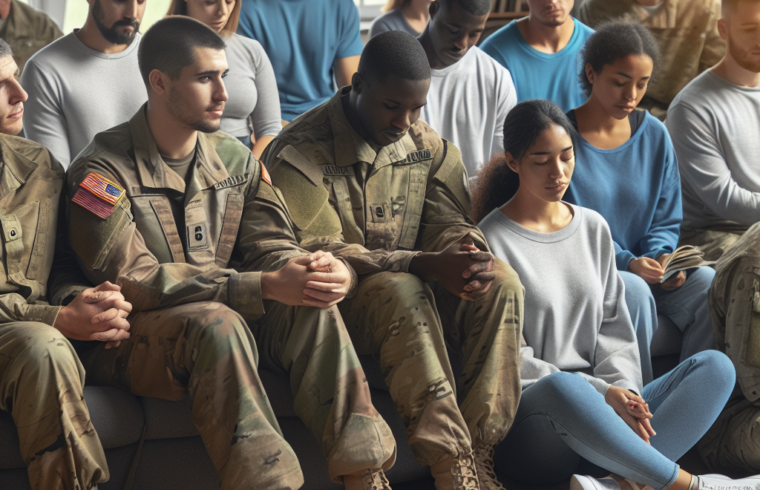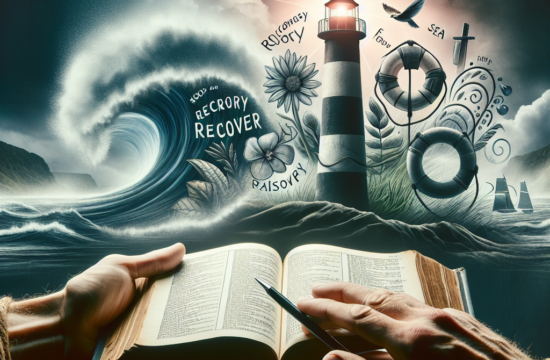==> Thank you for reading this post! Click Here If you are looking for support and Victory over PTSD.
Building a Solid Support Network
Connecting with Fellow Veterans
In my experience, connecting with other veterans who understand the struggles can be a game-changer. It’s like being part of a fraternity where your shared experiences help bridge a gap that others simply can’t understand. Over coffee or during a casual meet-up, I often find that talking about our experiences can be therapeutic.
Moreover, sharing stories within a safe space has this remarkable way of helping us all heal. I remember one time, a buddy and I opened up about our toughest moments, and it felt like a weight had been lifted from both our shoulders. Establishing these connections often helps in realizing you’re not alone, and that realization can be incredibly comforting.
Thanks to social media and local veteran organizations, finding a support group has never been easier. It’s surprising how just reaching out and talking to people who’ve been through similar situations can foster healing and understanding.
Family Support
Let’s face it, our families often feel the impact of PTSD just as much as we do. I can’t stress enough how important it is to involve them in the healing process. Educating family members about PTSD can help them recognize the signs and know how to respond effectively. It’s like giving them a new toolkit to tackle the tough days.
Having open conversations with my loved ones has allowed them to understand what I’m going through without judgment. Sometimes I’ll just vent or express how I’m feeling, and those simple actions can make a monumental difference. Trust me; their support can be a light in some of your darkest times.
Plus, fostering strong lines of communication with family can break down some of the barriers that PTSD can build. When they understand my triggers and how I cope, it creates a sense of teamwork. We’re all in it together, and that’s a powerful feeling.
Community Resources
Diving into local community resources was something I initially overlooked. There’s a treasure trove of support programs out there which can be invaluable. These can range from counseling services to recreational therapy, providing a variety of avenues to explore for healing.
One huge resource I tapped into was a local therapeutic horseback riding program. It sounds a bit unconventional, but being around those magnificent animals and focusing on something else helped clear my mind. It was a unique approach that many might not consider, but it worked wonders for me.
Additionally, I found that local community events geared towards veterans can help build camaraderie and lift spirits. By participating, not only do we create networks, but we also give ourselves opportunities to engage in fun, stress-relieving activities.
Professional Therapy Options
Individual Counseling
One of the best decisions I made was to seek individual therapy. Not everyone feels comfortable at first, but I promise you, it’s worth it. Talking to a professional about your feelings gives you the space to unravel those complex emotions. They can offer fresh perspectives that you might not see yourself.
Cognitive Behavioral Therapy (CBT) was particularly effective for me. It helped me change those negative thought patterns and recognize the triggers that led to my distress. Over time, I learned techniques to manage those feelings rather than letting them overwhelm me.
Remember, it’s a journey, and each session can lead to new insights. Some days can be tough, but with the right therapist, those burdens can become a little lighter. Just find someone who resonates with you and don’t hesitate to shop around if you need to!
Group Therapy
I know group therapy can seem intimidating at first – sitting in a circle spilling your guts to strangers? Sounds scary! But believe me, the magic of group therapy lies in the shared experience. Hearing others express their struggles can be validating, and it creates this beautiful community of support.
In my sessions, we tackled heavy topics, but it was comforting to know that others share my pain. Watching someone else open up, and then realizing how our stories are intertwined, makes it easier to peel back our own layers. It’s like, “Hey, I’m not that different after all!”
Moreover, group therapy often provides practical coping strategies that you’ve never considered. Sometimes I’d leave feeling uplifted, thinking, “This is a safe space for all of us to grow and heal together.” It was a bonding experience that turned out to be essential in my recovery process.
Alternative Therapies
There’s a whole world of alternative therapies out there. Things like art therapy, music therapy, or even yoga have piqued my interest. What I love about these approaches is that they allow expression in ways that discussion sometimes can’t. When words fail you, painting can give a voice to those buried feelings.
During a yoga class specifically tailored for veterans, I found peace that I didn’t expect. The focus on breathing and connecting with my body helped manage my anxiety like nothing else. The instructor was also a veteran, which created an instant bond among us. Sharing that space, finding our balance, it created a sense of calm that built on itself.
Trying out these alternative therapies can lead to unexpected breakthroughs. So, if you’re not convinced about traditional therapy routes, don’t hesitate to explore what resonates with your spirit.
Developing Healthy Coping Mechanisms
Physical Activity
Let’s talk about getting off the couch and moving our bodies. I can’t tell you how much physical activity has been a lifesaver for me. Whether it’s running, biking, or even taking long walks, finding a routine has become a key part of my recovery. It helps let off steam and, honestly, it fills me with joy!
Plus, the rush of those endorphins can lift your mood significantly. I often find that on days when I exercise, I feel a renewed sense of clarity. There’s something so liberating about pushing your physical limits that translates into your mental well-being.
And hey, if you can find a workout buddy, even better! Working out with someone else can add an element of accountability and support that you didn’t even know you needed.
Get Support and Help with Recovery! Visit us for more Information and Support
Mindfulness and Meditation
I’ll be honest, I was skeptical about mindfulness and meditation at first. However, after giving it a shot, I found it surprisingly helpful. Taking a few minutes each day to just sit, breathe, and be present has allowed me to observe my thoughts without judgment. It’s therapeutic!
Starting with guided meditation apps helped ease me into the practice. I’d pop in my earbuds, find a quiet place, and let a calming voice guide me. Over time, I graduated to longer sessions where I could just sit in silence. Each time, I walked away feeling lighter and more centered.
Mindfulness can also be integrated into daily activities—like savoring your meals or focusing on the sound of wind while walking. The key is to approach life with openness and curiosity, making every moment feel significant.
Creative Outlets
Finding a creative outlet was another unexpected benefit of my recovery process. I dabbled in photography and writing, and it turned out to be incredibly therapeutic. Capturing moments through the lens or expressing thoughts through words allows for a different kind of release.
By tapping into this creativity, I felt my emotions had a voice. Whether it’s painting, music, or even gardening, finding a passion can transform how we process our feelings. It’s about losing yourself in something that brings joy and relief.
And trust me, it doesn’t have to be perfect. Just get lost in the process. That’s where the healing happens. Find something that speaks to you and let it be your sanctuary.
Education and Empowerment
Learning About PTSD
A huge part of healing was understanding what I was going through. Researching PTSD, reading articles, and attending workshops helped me make sense of the confusion. Gaining knowledge is empowering, and it demystifies what seems like an insurmountable challenge.
Understanding your symptoms is the first step to managing them. Personally, learning the science behind PTSD helped me recognize why my brain reacted the way it did. Knowing it’s a common struggle among veterans made me feel less isolated in my experience.
Plus, being informed about new treatments and therapies opened up so many doors that I didn’t know were available. I felt more equipped to advocate for myself when seeking help.
Advocating for Yourself
Speaking of advocacy, I’ve learned that being my own best advocate is crucial. Whether you are navigating the VA system or seeking therapy, staying knowledgeable provides the confidence to speak up. If something doesn’t feel right, don’t be afraid to voice your concerns or ask questions!
This became particularly important when I sought different therapy options. I became aware of my needs and sought therapists that resonated with those needs. It empowers me to shape my recovery journey and take control—something that PTSD tries to strip away.
Ultimately, self-advocacy transforms you from feeling helpless to becoming an active participant in your health and healing journey. It’ll help you gain clarity and confidence.
Sharing Your Journey
Lastly, sharing my story has become an essential part of my healing. Whether through social media or in support groups, telling my story helps others, and that feels incredibly rewarding. Seeing someone else draw strength from my journey is like pouring a little light into a dark room.
Being vulnerable with my story allows me to foster connections with others who may be struggling. It reminds them that they aren’t navigating their journey alone. I’ve met some incredible people through this process, and it’s been eye-opening.
Empowering others with your story creates a sense of purpose. It’s a beautiful way of turning pain into something meaningful and can encourage others to be open about their experiences as well.
FAQs
1. What are some effective ways to support a soldier with PTSD?
Connecting with fellow veterans, family support, and community resources are all crucial for someone dealing with PTSD. Encouraging open communication and being there consistently makes a significant difference.
2. How can I find a good therapist?
Don’t hesitate to shop around! Look for someone who specializes in PTSD or trauma. References from fellow veterans or support groups can also guide your search, and make sure you feel comfortable with them after a few sessions.
3. Are alternative therapies really beneficial for PTSD recovery?
Absolutely! Many people find success in alternative therapies like art, music, or yoga. These methods allow for emotional expression and can be refreshing complements to traditional therapy.
4. How can I encourage my soldier to seek help?
Gently remind them that seeking help is a sign of strength, not weakness. Share the benefits you’ve seen in others and offer to support them in finding resources, attending therapy, or connecting with veterans.
5. Is recovery from PTSD possible?
Yes, recovery is absolutely possible! It may take time and a combination of strategies, but with support, professional help, and the right coping mechanisms, many find that life can improve significantly.













